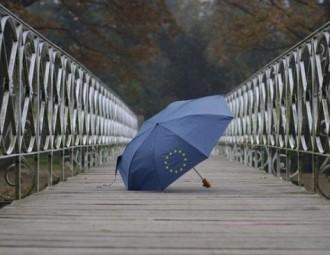Andrei Yahorau: Europe expects positive initiatives from Belarus

Transformation potential of “The European Dialog on Modernization” can be increased at the expense of better communication and dialog between the potential participants of the modernization processes.
This opinion in the talk with the EuroBelarus Information Service shared Andrei Yahorau, political scientist and the head of the Centre for European Transformation, commenting upon the policy paper “The European Dialogue on Modernization: the current status and development problems”.
“Different social and political groups in our country have either rather contradictory or simply different aims regarding to the directions for reforms in Belarus. And it is “The European Dialog on Modernization” that opens the area for discussion between these groups”, - explained the expert.
According to him, now the problem of communication and cooperation is complicated by the presence of the expert groups in the dialog rather than social and political players. “That is why we should broaden the representation and create additional area for communication between social and political structures, groups and initiatives of every kind. What is important is that they have at least some influence inside the Belarusan society”, - Andrei Yahorau stated.
We need media program
The political scientist also noted that “The European Dialog on Modernization” can be strengthened by creating additional infrastructural components, “which are present in the dialog now, though not on a regular basis and depend on the efforts of the volunteers in the organizations. They should be put on a regular basis instead”.
Andrei Yahorau recalled the suggestion to introduce media program that “The European Dialog on Modernization” should be accompanied with: “This media program should translate the ideas about the necessary reforms, promote certain topics and ideas, the idea of European choice, European path, the image and meaning of the European transformations in particular”.
Such work should be carried out not in the form of one-time information campaign, but rather on some infrastructural basis in order “to enable different media or public groups which are working with media to use this infrastructure in order to promote ideas of European choice”.
“Thus, it can be some fund that has possibilities to initiate thematic broadcasts, series of articles, special media campaigns connected with promotion of the whole package of ideas connected with “The European Dialog on Modernization” and democratic transformations in particular”, - suggested Andrei Yahorau.
The presence of such media component would make it possible to “spread the ideas of modernization in society and reach some social consensus on the necessity of reforms and their direction”.
Experts’ support and personnel’s manufactory
The other infrastructure component suggested for introduction to the “European Dialog on Modernization” by Andrei Yahorau is connected with the support of the research and expert groups who could be professionally working at developing package of reforms, initiating follow-up research and carrying out monitoring connected with these reforms.
Besides, the problem of personnel training for reforms should be partially addressed at the moment. “As in a number of areas we should not only know what and how to do, but we also need people who would put all these ideas into practice, - the political scientist explained. – And it requires those qualifications that neither the government experts, nor civil society and political opposition activists not always have”.
Uncoordinated stance of Belarusans and indecisive European Commission
Can we expect that suggestions to reform the “European dialog on Modernization” will be heard by decision-makers?
Andrei Yahorau said that this question should be examined separately. “It is hard to say who the decision-maker is. As some participants of the dialog say that the European Commission and the EU are responsible for decisions; however, this is not exactly so”, - believes the expert.
He noted that “the EU has strong focus on those trends and movements that are now happening in the Belarusan civil society and political opposition”. “The actions of the state do not remain unnoticed, too. And the decisions to be taken much depend on the actions carried out by Belarusans”, - the expert assumes.
He believes that if Belarusan political players are capable of demonstrating their independence and consolidated stance concerning the common dialog development, its aims and directions, then the EU will only be glad to get such positive initiative and include Belarusans into the decision-making process.
“For now the problem consists in the lack of one consolidated stance, - recalled Andrei Yahorau. – And for a number of reasons we can’t achieve consolidation. In this situation the EU and the European Commission take upon themselves all the responsibilities for decision-making, and, of course, prefer to be careful and act slowly. It is highly possible that it will decline some large-scale changes in the dialog in order to achieve at least minor results”.
-
03.01
-
07.10
-
22.09
-
17.08
-
12.08
-
30.09








































